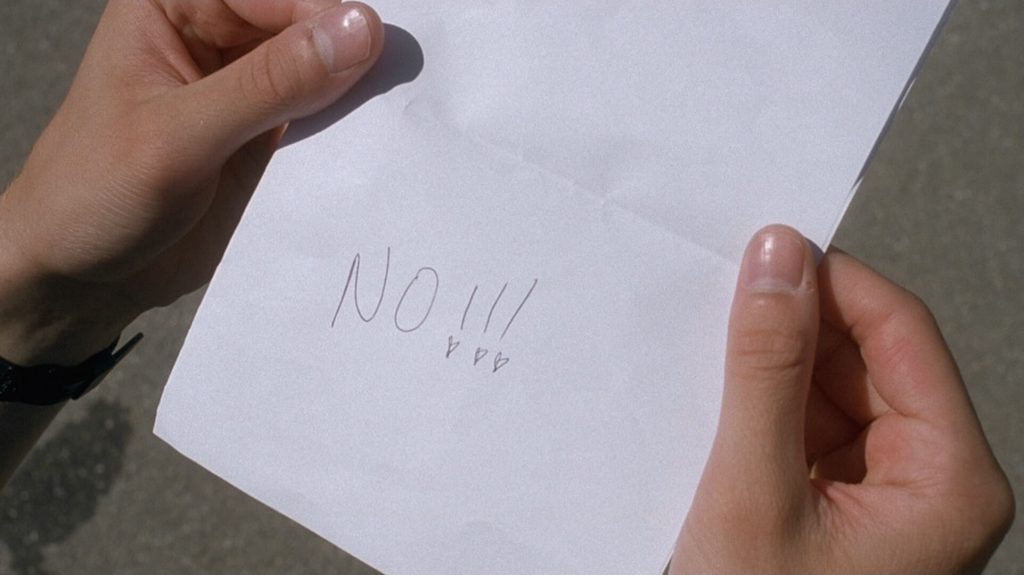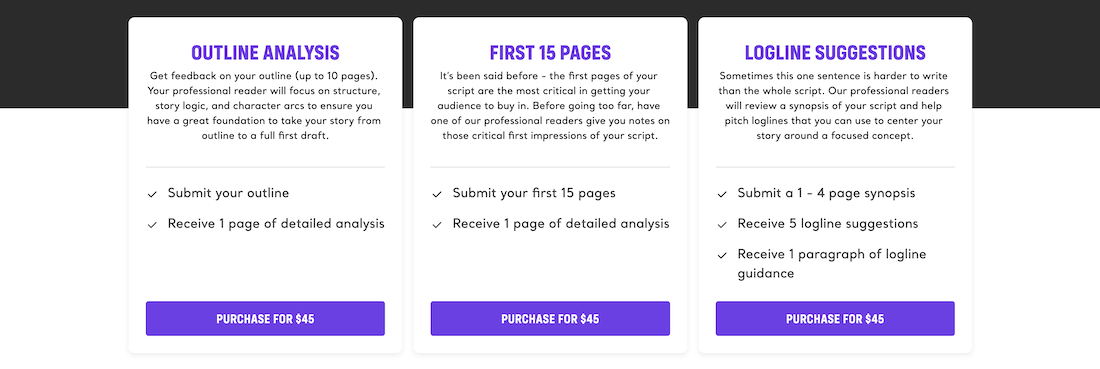5 Pro Tips on How to Stay Motivated as a Screenwriter

The unmotivated don’t make it. This statement is true in any industry or career, but it’s especially true when you have dreams and aspirations to become a cinematic storyteller (AKA a screenwriter). Staying motivated is key. It’s what will drive you through the inevitable hard times during your screenwriting journey. It will keep you focused and help you stay on course.
I’ve been a pro screenwriter for 18 years. I started strong with a Lionsgate deal, later followed by a produced miniseries with a name cast and later an indie feature. But I’ve also struggled with what I call dark years when prospects were few and far between.
Thankfully, I’ve had 10 network screenwriting contracts in the last few years, with eight produced and distributed features, two more on the way, and more contracts coming. I also have potential deals for bigger Hollywood productions in talks as well.
Needless to say, I’ve been busy (and blessed). I just wanted to take the time to share some perspective on how you can stay motivated as a screenwriter—not just during the dark years of seemingly endless rejection and few-to-no prospects, not just when you’re fearing that writer’s block is slowing you down (writer’s block is BS, by the way), but also when things are going great, and even when you’ve broken through and are writing under pro contracts.
5 Ways Screenwriters Can Stay Motivated from a Pro Screenwriter’s Perspective
1. Make Sure You Want to Be a Pro Screenwriter
This may seem obvious, but it’s the first pro tip I usually give people. “Is this really something you want to do?”
You can’t go into screenwriting half-ass. You either want to do this and will do whatever it takes however long it takes to make this dream come true, or you’re just looking for a lottery ticket by selling a spec script (that doesn’t happen) and think it’s an easy career (it’s not).
You need to make sure you’re doing this for the right reasons. Why is this a motivational tip? When you learn how difficult it is to even get a script read by the industry, many will quickly lose motivation and try to get that first one rewritten, rewritten, rewritten, and sold. If quick and big money is your motivator, your motivation is going to struggle fairly quickly.
On the other hand, if you are motivated to learn, get better, master the guidelines and expectations the industry has for its screenwriters, and work towards a career in screenwriting (not a lottery win, which, again, doesn’t happen), you’ll have more motivation to take you forward.
Read More: The Greatest Impediment to Your Screenwriting Career Might Be... You

'Past Lives' (2023)
2. Expect the Wait and Rejection
Trust me, I’m not trying to be a buzz-kill here. But these are things you need to hear. Had I heard these things when I first started, I would have saved myself years of frustration and despair.
So, here’s what you need to expect—brace yourselves:
- You’re not going to sell your first script. “But the writer who wrote Juno…” worked for years as a copywriter, stripper, and blogger, the latter of which led to her writing a memoir that caught the attention of industry insiders. The point is, don’t use anomalies to gauge your expectations.
- You likely won’t sell your second, third, fourth, etc. You need to stop thinking about your scripts as manuscripts for sale and start thinking about them as samples for the true bread and butter of pro screenwriters—writing assignments. Selling a spec doesn’t happen that often in a screenwriter’s career. Even for the top one-percenters.
You stay motivated by the thrill of seeing these movies in your head come to life on the page. Any success you have with them should be considered icing on the cake.
That’s the true motivator—the magic of taking the seed of an idea, developing it into a cinematic story, and seeing it through to the end. Let that be your motivator because the business end of things sucks. Most screenwriters struggle for a decade before their first paid gig. For me, it was eight years before my Lionsgate deal.
The wait and the rejection are motivation-killers. If you focus too much on high expectations—as opposed to the likely reality—you won’t last too long.
Here’s the key thing to help you stay motivated—use this time to learn and evolve as a screenwriter as you write multiple scripts. Learn from your mistakes and triumphs within them.
Read More: The Secret Cost of Screenwriting: Rejection, Uncertainty, & Anxiety

'Napoleon Dynamite' (2004)
3. Set Industry-Mirroring Deadlines for Yourself
A majority of novice screenwriters will take a year or more to write a single screenplay. Why does it take so long? Part of the reason is a lack of motivation.
When you’re writing on spec, there’s no ticking time clock. There’s no deadline driving you to get the work done. Instead, you find yourself waiting to be inspired, which is a crock. If you want to be a pro screenwriter, you need to learn how to create inspiration (that’s a whole other post for the future). You need to manufacture inspiration upon request.
Taking a year, two years, or more to finish a single script is, I’m sorry, ridiculous.
“But I work a full-time job… I have kids… I’m in college…”
If you really want to be a screenwriter (see #1 above), you’ll find the time to stay motivated. You don’t need to write for eight hours a day. That’s a myth. And for the top one-percenters out there who talk about doing so, that’s a privilege in hindsight. It’s a way for them to romanticize their writing.
It may be true for them post-success. But before their success, they struggled for a decade, just like you are now. And they had to learn how to find time to write amidst full-time jobs, school, and/or family duties.
You need to set deadlines for yourself, and not just random deadlines. Stringent ones. Deadlines that mirror industry contract norms to keep you motivated.
Now, if you look at Writers Guild of America contract guidelines, you can see that such guild-signatory contracts stipulate about three months for a first draft. For beginners, that’s a great start. Give yourself three months to finish a script. Before that, maybe one month beforehand to do the necessary prep (outlines are your friends, trust me).
But if you really want to train yourself under real-world deadlines, get to a point where you can finish a script in one month—with an additional two weeks for each rewrite.
Those are the deadlines I work under for all of my 10 Lifetime contracts. It’s easier than you’d think.
- Think less about writing days and writing hours. Instead, focus on writing sessions. Sit down and write 10 pages. It doesn’t matter if it takes you an hour or multiple hours. Write 10 pages and stop.
- 10 writing sessions of 10 pages get you 100 pages. The sweet spot for script page length is 90-115 pages.
- Reread each 10-page output you do before you begin the latest and rewrite as you go.
Writing a script in a month means you can average just 10 writing sessions out of a month and come out with a solid first draft (especially if you rewrite as you go), which means if you had each writing session on a different day, it’d only take you 10 days out of a whole month to finish a script. That's pretty good motivation if you'd ask me.
The month-long deadline is the most common deadline timeframe for non-union writers (I’m non-union). And most of the working screenwriters out there, collectively, are non-union (there’s plenty of guild members that aren’t working, mind you).
Setting industry-mirroring deadlines like these will not only jumpstart your motivation—but it’ll also help train you to work under real-world deadlines and conditions.
Read More: The 10-Day Screenplay Solution: Learn How to Write Lightning Fast
4. Stop Writing When You’re Aching and Eager to Write More
Here’s another pro tip I use to increase my motivation. Sure, it’s easy to suddenly embrace a motivated push amidst inspiration. Sometimes you’re just in the zone and want to keep going. Other times, you’re desperate and just continue typing even though you know what you’re typing isn’t your best.
My biggest tip is to leave yourself aching to write more. Stop your progress when you can’t wait to write the next scene because you have it in your head and you know you can lay it out on the page.
As I suggested above, try to work with a page count goal, as opposed to focusing on writing for X amount of hours. If you embrace the 10-page goal I utilize during my pro assignment contracts, stop on page 10 no matter what momentum you have going.
Why? This is what motivated you to find the time for your next writing session! Instead of going into a writing session blind, overwhelmed, under-prepared, or exhausted, you’ll go into that next writing session excited to continue. It’s the best way to make writing not only more fun and enjoyable, but exhilarating!
5. Wait Until the Last Minute to Write
I know. It sounds crazy and irresponsible—and this one may be only for a select few of us mavericks. But it’s a pro tip I ride and die with that goes hand in hand with #4 above.
I love to wait. I love to wait until the last second I should start my latest draft. If I have a month on contract, I can sometimes wait two weeks before I start—and then it’s on. The adrenaline and excitement of waiting and waiting motivates me to the point where all I want to do is write. And that type of excitement also produces outstanding inspiration as well. It’s not procrastination—not at all. It’s all about holding that stallion behind the gates until it’s ready to explode out with full force, speed, and drive.
But here’s the thing—just because I’m not physically typing doesn’t mean I’m not writing. Visualization is a key part of the process. Visualization is writing, just as much as typing dialogue and scene description is.
While I’m forcing myself to wait a little longer than most think one should, I’m seeing scenes and conjuring scenes in my head as I walk, run, lift, and daydream. I’m also watching movies and shows that may have some similar elements to what I’m about to write, be it genre, character type, tone-wise, atmosphere-wise, time period, etc.
This process feeds and fuels the visuals, story points, plot twists and turns, characterization, story structure, and pacing that I already have in my head and on outline pages—to the point where I feel like I’m going to explode if I don’t start writing.
When do you know when to start writing while holding yourself back? You’ll know.

---
These are five pro tips that I use in my professional screenwriting career daily to keep me motivated. Once you are on contract, things move by fast. You need to train yourself to be ready. Once you know you’re sure you want to be a screenwriter, you can start that learning process.
You start by setting realistic goals and expectations, knowing what to expect. You then start writing under industry-mirroring deadlines to get yourself used to having to write on demand quickly. You then learn tricks of the trade that help you perform better and faster because that’s what it takes to stay a working screenwriter.
Read More: 5 Reasons You Should Write a Short Story
Check out our Preparation Notes so you start your story off on the right track!

Ken Miyamoto has worked in the film industry for nearly two decades, most notably as a studio liaison for Sony Studios and then as a script reader and story analyst for Sony Pictures.
He has many studio meetings under his belt as a produced screenwriter, meeting with the likes of Sony, Dreamworks, Universal, Disney, Warner Brothers, as well as many production and management companies. He has had a previous development deal with Lionsgate, as well as multiple writing assignments, including the produced miniseries Blackout, starring Anne Heche, Sean Patrick Flanery, Billy Zane, James Brolin, Haylie Duff, Brian Bloom, Eric La Salle, and Bruce Boxleitner, the feature thriller Hunter’s Creed, and many Lifetime thrillers. Follow Ken on Twitter @KenMovies and Instagram @KenMovies76
Get Our Screenwriting Newsletter!
Get weekly writing inspiration delivered to your inbox - including industry news, popular articles, and more!




























